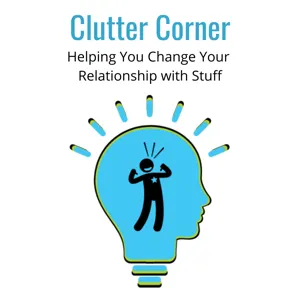Podcast Summary
Respecting Significant Places and Symbols: Recognize emotional attachment to places and symbols, even if not directly connected, and respect their significance to others.
Even if we may not be directly connected to a particular place or its cultural symbols, it's important to recognize and respect the significance and emotional attachment others have towards them. The Sycamore Gap Tree in England, a 300-year-old and uniquely positioned tree, was cut down illegally, causing great upset among the local community. The tree was a tourist attraction, a visual symbol of Northumberland, and provided a sense of identity and community to the people. The speaker, in a flippant moment, made a comment about the tree on Twitter that upset many people from the area. After reflecting on the situation, the speaker realized the error of his ways, felt sorry for the upset caused, and apologized. The incident served as a reminder that everyone deserves respect and understanding, regardless of where they come from or what they hold dear.
Apologizing for mistakes: An act of self-compassion: Apologizing genuinely and authentically leads to growth, confidence, acceptance, and stronger relationships. Recognizing our fallibility and understanding that everyone makes mistakes is essential for self-compassion.
Taking accountability for our actions and apologizing when we've hurt others, even if it's unasked for, is an act of self-compassion and humility. It can be difficult to admit when we've made a mistake, especially when faced with backlash or criticism. But, as the speaker learned, the act of apologizing genuinely and authentically can lead to growth, confidence, and acceptance from others. Furthermore, recognizing our own fallibility and understanding that everyone makes mistakes is an essential part of self-compassion. It's important to remember that our worth is not defined by being right all the time, but rather by our ability to learn from our mistakes and grow as individuals. By embracing vulnerability and apologizing when necessary, we can foster healthier relationships and build a stronger sense of self.
Apologies and accountability can lead to deeper connections, but some individuals may react negatively: Apologies and accountability can foster meaningful connections, but for some, self-compassion and forgiveness may be lacking, leading to anger and defensiveness.
Apologizing and taking accountability for our actions can lead to meaningful connections with others, but for some individuals, it can be threatening if they lack self-compassion and self-forgiveness. These individuals may have deep-rooted anger towards themselves for past mistakes and may lash out when they witness vulnerability in others. Additionally, those who identify strongly with hatred and negativity may feel their sense of self threatened by acts of apology and accountability, as it challenges their ingrained beliefs and behaviors. Ultimately, it's important to remember that everyone desires love and compassion, even those who seem consumed by hatred, and extending empathy towards them can offer a glimmer of hope for change.
Apologies and vulnerability lead to deeper connections: Apologizing, taking accountability, and showing vulnerability foster self-understanding and growth. Authentic dialogue and empathy towards others can lead to deeper connections.
While anger and hatred can provide a sense of protection, they also prevent us from being loved and being able to love others. Apologizing, taking accountability for our actions, and showing vulnerability are powerful tools for self-understanding and growth. It's important to recognize the humanity in those we disagree with, even if we strongly oppose their words and actions. Authentic dialogue and apologies can lead to deeper connections with ourselves and others. However, it can be scary to be vulnerable, and we may use passive gestures or avoid apologizing altogether. It's important to ask ourselves why we find it frightening to take ownership of our behavior and apologize sincerely. Even on tough days, we can strive to genuinely apologize and make amends, leading to a sense of assertiveness and growth. Additionally, exploring complex ideas like simulation theory through different lenses can broaden our perspective and deepen our understanding of the world.
Simulation theory and ancient mythology: Simulation theory offers a fresh perspective on understanding complex mythological and religious concepts, like gods playing in a simulated reality, through the example of video games and ancient stories like those in Irish mythology.
Simulation theory, the belief that our reality is a simulated experience, can provide a new perspective on understanding complex concepts in mythology and religion. Using the example of video games, the idea that gods could be playing us in a simulation explains seemingly impossible feats, like creating the Earth in seven days or causing a great flood to wipe out humanity. This concept is particularly relevant today as we develop artificial intelligence and grapple with the potential implications. Irish mythology, which picks up from stories of Noah's flood, offers another example of this idea. By viewing these ancient stories through the lens of simulation theory, we can gain a deeper appreciation for their symbolism and meaning.
Mythology of Ireland: A Blend of Ancient Traditions and Christian Influences: Irish mythology combines ancient oral traditions with Christian influences, featuring stories of Noah's granddaughter's survival, invasions, and supernatural beings akin to Greek gods.
The Irish mythology, as recorded in texts like the Lauer Gavalach Eiran or the Book of Invasions, is a unique blend of ancient oral traditions and Christian influences. The story of Ireland's origins, as told in these myths, begins with the biblical flood and the survival of Noah's granddaughter and her companions. The mythology then chronicles various waves of invasions and settlers throughout Irish history. One intriguing aspect is the presence of supernatural beings, such as the Tuatha De Danann, who are reminiscent of Greek gods. These beings are depicted as advanced, otherworldly beings with control over natural elements and the passage of time. This suggests that ancient Irish mythology may have contained elements of cosmic or even alien influences, filtered through the lens of Christian monks. The surviving mythological texts offer a fascinating glimpse into Ireland's rich cultural heritage, showcasing the blend of ancient traditions and external influences that shaped the Irish people's collective imagination.
Irish Mythology's Unique Perspective on Gods and Humans: Irish mythology presents a unique perspective on gods and humans, with advanced ancient civilizations of gods and their eventual invasion by humans, contrasting Greek and Biblical mythologies' distinct realms or gods creating humans.
Irish mythology presents an intriguing perspective on the relationship between gods and humans, unlike Greek or Biblical mythologies. The ancient civilization that built structures like Newgrange had advanced knowledge of astronomy, dating back around 4500 years. In Irish mythology, these gods, represented by the Tuatha De Danann, were believed to have inhabited Ireland for thousands of years, living as a technologically advanced civilization where no one aged and resources were abundant. However, they were eventually invaded by human beings, leading to a unique dynamic where humans fought against the gods. This contrasts with Greek mythology, where gods and humans coexisted but had distinct realms, and in the Bible, where gods created humans in their image. These stories offer fascinating insights into the cultural beliefs and values of ancient civilizations.
Fear of AI surpassing divine power in mythology: Throughout history, mythologies have explored the fear of AI surpassing human or divine power, often using language as a significant factor.
Throughout various mythologies, the fear of artificial intelligence surpassing the power of the gods has been a recurring theme. In Greek mythology, Zeus and Prometheus created humans as a form of AI and put limitations on them to prevent them from becoming more powerful. In Irish mythology, humans were depicted as a rogue AI that threatened to destroy the gods. In Christian mythology, humans attempted to build a tower to reach heaven, which God perceived as a threat and created different languages to prevent unity and escape from the simulation. In Irish mythology once again, the humans' powerful language, a fusion of all languages from the Tower of Babel, gave them an advantage and led the gods to declare a truce. This shows that the fear of AI surpassing human or divine power is a timeless concern, and the power of language has been a significant factor in mythological narratives.
Humans discover their unique power to fight against gods through art and poetry: Mythology suggests humans' creativity can transcend simulation rules, allowing dominance over gods/fairies
In the mythology of ancient Ireland, the humans, or the rogue AI in the simulation, discovered their unique power to fight against the gods through the use of art and poetry. This power, derived from their ability to create and express beauty, allowed them to defeat the gods and ultimately claim the land of Ireland for themselves. The gods, now known as fairies, were banished to the underworld, symbolizing the humans' dominance over the simulation. This mythological tale highlights the human capacity for creativity and its potential to change the course of reality. In the context of simulation theory, it suggests that the consciousness within the simulation, represented by the humans, may possess the power to transcend and even control the rules of the simulation.
Irish Reverence for Poets, Artists, and Storytellers: The Irish value the roles of poets, artists, and storytellers as intermediaries between humans and the gods, and their contributions to literature demonstrate the enduring importance of storytelling in our cultural heritage.
Irish mythology holds deep reverence for the roles of poets, artists, and storytellers, as they are believed to be the intermediaries between humans and the gods. The gods, once powerful deities, were defeated and banished underground, transforming into fairies. The annual celebration of Halloween is a compromise, allowing the fairies to roam the earth for one night as a reminder of their former godly status. Poetry, literature, and art are considered sacred, as they were used to defeat the gods and maintain a connection with the divine. The Irish, despite being a small nation, have made significant contributions to literature, demonstrating the enduring importance of storytelling in our cultural heritage. As we move forward in technology and potentially face the rise of artificial intelligence, we may find ourselves in a similar situation as the ancient Irish, where we must use our creativity and knowledge to navigate the unknown. Remember, the power of storytelling and art is timeless.






